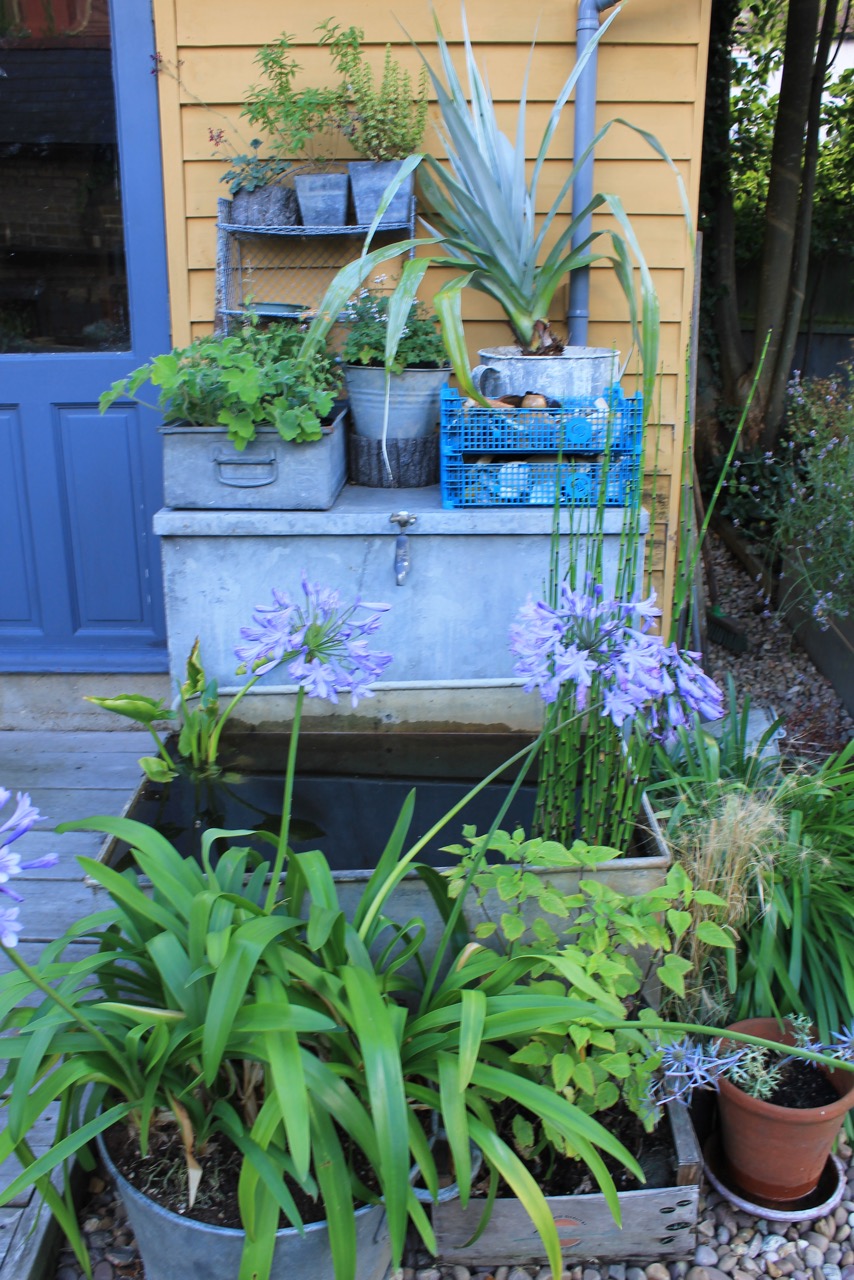Container gardening isn’t easy. You have to look after your plants, feed them weekly and water them regularly, because they’re entirely at your mercy and won’t flourish if you don’t keep a close eye on them.
Getting down to basics, the compost nurseries use works well getting the plants to sale, but is used to being regularly misted, sprayed and kept constantly moist. The minute it dries out it sets into a waterproof brick that can only be re-constituted by plunging the whole plant into a bucket overnight. So I shake the plant out of its pot and re-pot in a more open peat-free compost with added grit.
I usually line the base of the pot with a square of weed control fabric to discourage ants, then add crocks for extra drainage. If the container is really enormous, I’ll put in chunks of polystyrene packaging before adding my new compost. After planting, I usually sprinkle the surface with horticultural grit to discourage vine weevils.
Watering early morning with a cup of tea or late in the evening with a glass of wine (for me, not the plants) is a relaxing way to start or end the day, and a weekly water with diluted plant feed should encourage your flowers to bloom. Make sure you position your pots to their best advantage and keep plants that enjoy shade out of sunlight.
I collect containers for fun. Metal, wood, clay, terracotta or even plastic. Every car boot sale, junk shop, skip and yard sale is my hunting ground, and matching them with their plant inhabitant is one of the most pleasurable aspects of container gardening. First make sure you can make drainage holes if you intend to plant straight into them, rather than use as a cache-pot and put a plastic pot inside them. Place your container on the lawn to cushion it, then using a mallet and a Phillips head screw driver, bash a couple of drainage holes in the bottom. An electric drill works too.
Apart from succulents (see my blog for September 2016), I love grasses in pots, salvias, astelias, agapanthus, cordylines, bulbs and herbs in pots. Anything in pots virtually, and the great thing is, the minute they’re past their best you can move them out of the way and bring something else centre stage.




